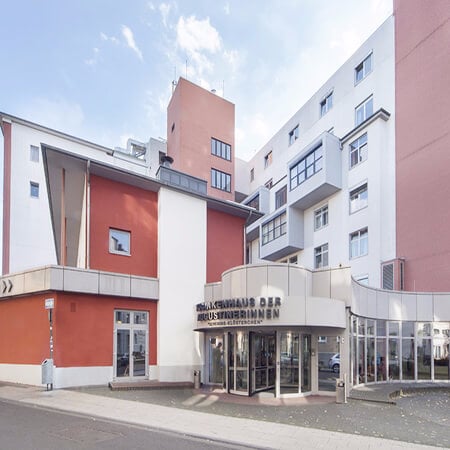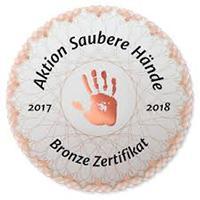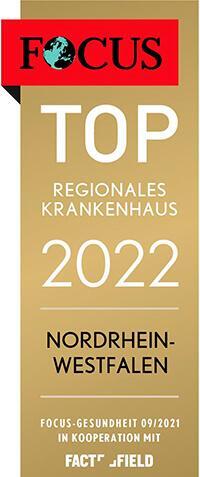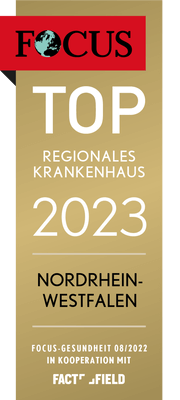Hypersensitivity pneumonitis (formerly known as exogenous allergic alveolitis) is a lung inflammation caused by an allergic reaction. The disease can be acute or chronic, with or without pulmonary fibrosis. At the advanced stage, the pathology leads to respiratory failure, which can only be eliminated with the help of a lung transplant. However, if timely detected and adequately treated, this disease can be kept under control. You can seek medical attention from one of the German hospitals to undergo your diagnostics using state-of-the-art equipment and receive medical care from the best doctors in the world.
Content
- Causes of the disease
- Diagnostics
- Treatment
Hypersensitivity pneumonitis is treated with drugs that suppress immune responses in the lungs. Antifibrotic agents are used for fibrosis. Donor lungs can be transplanted whenever required.
You can undergo your treatment in one of the following hospitals: University Hospital Heidelberg, Academic Hospital Augustinerinnen Cologne, or University Hospital RWTH Aachen.
You do not have to solve your organizational issues yourself, as the Booking Health specialists will take care of the arrangement of your trip. They will recommend a clinic and a doctor, help you to apply for a visa and get to the clinic and take care of the translation of your medical records. They will also provide medical insurance for you and take care of the absence of overpricing for your treatment.
Causes of the disease
Hypersensitivity pneumonitis is a variant of respiratory allergy. This is an immune response to repeated inhalations of substances to which a type III or IV hypersensitivity reaction develops in the body. As a result, the body's immune system attacks the lung tissue and destroys it.
More than 300 allergens are known to cause the disease. They are divided into groups: bacteria, fungi, animal proteins, vegetable proteins, low molecular weight chemicals, and metals. However, not all patients with allergies develop alveolitis because there must be a genetic predisposition to this disease. Smoking reduces the risk of developing hypersensitivity pneumonitis, but if a smoker does develop the disease, it is more severe than in a non-smoker. Alveolitis is most often associated with a patient's occupational activity or hobbies. Depending on a specific allergen that has caused hypersensitivity pneumonitis, doctors may use such terms as "farmer's lung," "gardener's disease," "cheesemaker's lung," and so on in different patients.
Diagnostics
Doctors can diagnose allergic alveolitis with the following methods:
- laboratory tests for inflammatory markers;
- allergic tests to determine the allergen;
- an antibody test to determine the most common respiratory allergens;
- inhalation provocation tests;
- spirometry for lung function assessment;
- a chest x-ray;
- a chest CT scan is the most accurate diagnostic method, allowing the doctors to make a diagnosis in 92% of cases;
- flexible bronchoscopy with bronchoalveolar lavage (inserting a tube into the bronchi and obtaining material for subsequent laboratory tests).
A lung biopsy can rarely be performed. It may be required if the diagnosis cannot be established in another way. A biopsy is usually performed during a bronchoscopy. A surgical biopsy is rarely needed to obtain more tissue. Instead, German medical centers use a new and more sparing procedure called a transbronchial cryobiopsy.
Treatment
The primary purpose of treatment is the elimination of the cause of alveolitis. Continued exposure to the pathogenic factor leads to a further decrease in a person's respiratory function.
The allergen cannot be detected in many patients, as a result of which contact with it cannot be stopped. In addition, respiratory symptoms and advanced X-ray changes may occur even when contact with the substance to which the patient develops a hypersensitivity reaction is excluded. In this case, the main treatment method becomes immunosuppression, which involves suppressing the immune mechanisms of lung inflammation. Doctors mostly use glucocorticoids.
Healthcare professionals in Germany also successfully use other drugs for the conservative treatment of allergic alveolitis, which eliminates lung inflammation and prevents or slow down the development of fibrosis:
- azathioprine and mycophenolate mofetil are immunosuppressants that inhibit the proliferation of B and T cells;
- rituximab and leflunomide are less commonly prescribed;
- anti-fibrotic drugs are used to treat pulmonary fibrosis.
The additional use of immunosuppressants helps to reduce the need for glucocorticoids and can be used in cases of resistance to these drugs.
Pulmonary rehabilitation helps to relieve symptoms, improve exercise tolerance, and improve quality of life. Over time, a patient may require oxygen therapy.
In severe cases, a lung transplant is performed. This surgery provides good results but still requires limiting contact with allergens. This need is due to the fact that an allergic inflammation can recur even in the donor's lungs since the immune system's hypersensitivity to certain substances does not disappear after the operation.
You can undergo your treatment of exogenous allergic alveolitis in Germany to get the best results. You are welcome to use the Booking Health service to see the cost of treatment and book your treatment at a favorable price. The website presents the best German hospitals. The Booking Health specialists will help you to find clinics in Germany and arrange your trip.
Authors:
This article was edited by medical experts, board-certified doctors Dr. Nadezhda Ivanisova, and Dr. Bohdan Mykhalniuk. For the treatment of the conditions referred to in the article, you must consult a doctor; the information in the article is not intended for self-medication!
Our editorial policy, which details our commitment to accuracy and transparency, is available here. Click this link to review our policies.
Sources:
Web MD
Verywell Health
MedicineNet



















